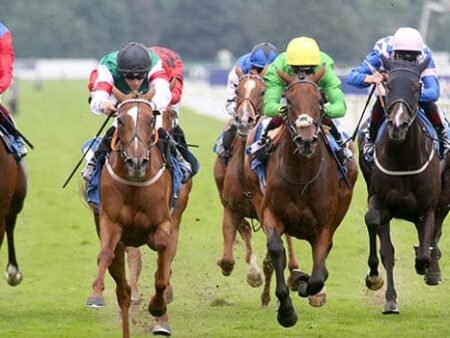Posted on: August 9, 2024, 11:04h.
Last updated on: August 9, 2024, 11:04h.
Three Republicans in the Ohio House of Representatives say the state’s ban on college player prop bets is unwarranted in the wake of student-athletes being able to profit from their name, image, and likeness (NIL).

Last month, the Study Commission on the Future of Gaming in Ohio presented its findings to the state legislature. The 11-person bipartisan group of lawmakers and state racing and gaming officials struggled to find a consensus on whether to support the authorization of online casino gambling and internet lottery games.
However, the three GOP lawmakers serving on the committee came out in support of more gambling options being afforded to Buckeye State residents, including online slots, table games, and lottery sales. They also voiced their opposition to the Ohio Casino Control Commission (OCCC) earlier this year placing a ban on player prop bets involving collegiate athletes.
Unneeded Regulation
At the request of NCAA President Charlie Baker, OCCC Executive Director Matthew Schuler determined in February that requiring the state’s retail and online sportsbooks to remove college player props was needed to protect the integrity of college sports and reduce instances of player harassment. Schuler cited that such player props accounted for less than 1.5% of the overall money wagered on sports last year in Ohio.
Ohio Reps. Jay Edwards (R-Athens), Jeff LaRe (R-Violet), and Cindy Abrams (R-Hamilton) say the exclusion of such betting lines does little to protect college players and since student-athletes can now receive NIL money, they should be treated similarly to professional athletes.
“While we understand the circumstances in which this decision was made, we believe it is one that was not needed,” the Republican lawmakers wrote in their policy recommendations.
With the current landscape of collegiate athletics and NIL, players are now being paid to play (and perform) in certain sports. That is no different than any other professional sport. Reports of harassment and potential threats are unacceptable at any stage of athletics. Such acts should be investigated and prosecuted accordingly,” the suggestion continued.
“But the response from the OCCC to simply ban prop-betting on individual collegiate athletes looks to solve the problem without addressing the issue. We recommend that the OCCC’s policy be rescinded and prop- betting on college athletes be restored,” they concluded.
Prop Bans
Most states prohibit their licensed sportsbook operators from accepting player props on college athletes. Such props typically involve a bet based on a single player’s performance.
Kansas, Michigan, Nevada, North Carolina, and Washington, D.C., are the only sports betting jurisdictions where college player props are fully allowed. College player props are also allowed in New Jersey but odds involving players enrolled at state-based schools are forbidden.
Along with Ohio, gaming regulators and/or lawmakers in Louisiana, Maryland, and Vermont this year altered their sports betting rules to prohibit college player props.
Baker, who signed Massachusetts’ sports betting bill into law while governor of the state, says player props in college sports are “enormously problematic.” The former governor who became head of the collegiate sports governing body in March 2023 says college athletes “generally are surrounded by a huge percentage of their classmates who bet on sports.”










